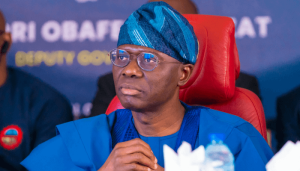You May Never Be A Billionaire In Nigeria If You Were Born Between 1974 And 1984

Check out the list below:
Aliko Dangote: 1957
Mike Adenuga: 1953
Tony Elumelu:1963
Herbert Wigwe: 1966
Fola Adeola: 1954
Jim Ovia: 1951
Abdul Samad Rabiu (BUA cement):1960
Cosmas Maduka:1961
Wale Babalakin:1960
Femi Otedola:1967
What do they all have in common apart from being rich?
Now look up again…yes you guessed right they were all born between 1950 and 1970. These are arguably some of Nigeria’s billionaires. Some were born in the ’50s whilst the others in the ’60s. Between the oldest and the youngest is about 14 years. Still within the same generation.
These guys all belong to a Golden Generation. A generation that its maturity coincides with the formative stages of the modernization of the Nigerian Economy.
The generation that was the obvious choice to have bought banking licenses just as the Babangida government deregulated the banking sector.
The generation that obtained oil licenses by just being acquaintances with the government.
The generation that was ready when the government decided to privatize its companies.
The generation that started their business when there was less competition.
The generations that will oversee the start of the economic revolution in Nigeria. The generation that had a head start on those that will be born 10 to 20 years after them.
It’s no curse to the 70’s and mid 80’s generation that they weren’t born then. It’s just that the world has a way of presenting opportunities at certain periods in a complete generation cycle (every century). It’s not only peculiar to Nigeria alone.
Even in the US the Bill Gates, Steve Jobs, Eric Schmidt, Jerry Chang, Bill Joy of this world were born in the ’50s and ’60s as well. Just in time for the Personal Computer revolution.
Also in Russia, Roman Abramovich, Alisher Usmanov, Alexander Lebedev, were all born in the ’50s. Just in time to be ready for the deregulation of the Russian economy after the fall of communism in Eastern Europe.
A lot of psychologists have written on the impact of age, period, demographics and race on determining those who end up to be pioneers, captains of industry and financial heavyweights. It’s purely debatable but can’t be waved aside.
In Nigeria, if you were born the in the mid-’70s, then by 2000, just at the the advent of democracy, you would have been out of school and probably an intern in a bank, the insurance company, one-man business or just a sole a trader at best. The government of Obasanjo/Yar Adua/Goodluck Jonathan/Buhari did not hire that much and even if they did, you stood little chance of getting as the generation just 10 years before you were more qualified, had a better experience and were probably even better education.
And even if you wanted to own your own bank (the quickest way to being a billionaire in Nigeria) you couldn’t, as that wave of opulence had already blown past.
With just N50 million back in the day you could own a bank in Nigeria in the The 90s. Now, N25 billion is the threshold.
The barrier to entry between the 90s and the 2000s for new commercial banks had never been so difficult. In fact, commercial banks grew from about three in 1980 to 33 in 1994. It was just 7 in 1985, so within 10 years it had more than quadrupled. The number now hovers around 20, if we exclude the nationalized Banks.
The Tony Elemelu’s and Fola Adeola’s of this world are no better than most of the guys born in the ’70s. Them being successful entrepreneurs and probably billionaires do not make them any smarter ( not saying they aren’t) or make them never-before-seen geniuses. Like those who came after them, they were simply lucky as the world around them at the time of their maturity was ready and prepared for them. These guys went to secondary schools when it was free to. Even if they had to pay, they had a scholarship which protected them. They were encouraged to go abroad for post-graduate education and guaranteed jobs on their return. They even ended up leading the political class far longer than their predecessors and have yet to give their generation after them a chance. The gap in privileges is endless. For them, they had no reason not to be billionaires.
The generation of the ’70s and ’80s need not to worry too much about being billionaires. In fact, there won’t be many of them who will be billionaires before the age of 40 unless it is inherited or aided massively with corruption or Yahoo Yahoo. The world prepared for them to be employees of the generation before them and not entrepreneurs. They have worked harder than those before them, read more and have suffered more.
They have even sacrificed more for Nigeria. But that’s life, the just have to “chin up” as the say. They should focus on placing their kids on the path to the next big economic revolution which must come to Nigeria in the next decade. I am no soothsayer but life can be predictable if you can learn from history. It’s already happening.
Those born in the late ’80s and ’90s are changing the way we listen to music and entertain ourselves, the way we communicate and the way we transact. They are not hindered by the conservatism and timidness of the ’70s and 80’s generation, impacted upon by their parents.
They were not born in the 50’s or 60’s and certainly not born in the ’70s. They were born in the late ’80s, the ’90s and 2000s and they will be the next set of billionaires in Nigeria









